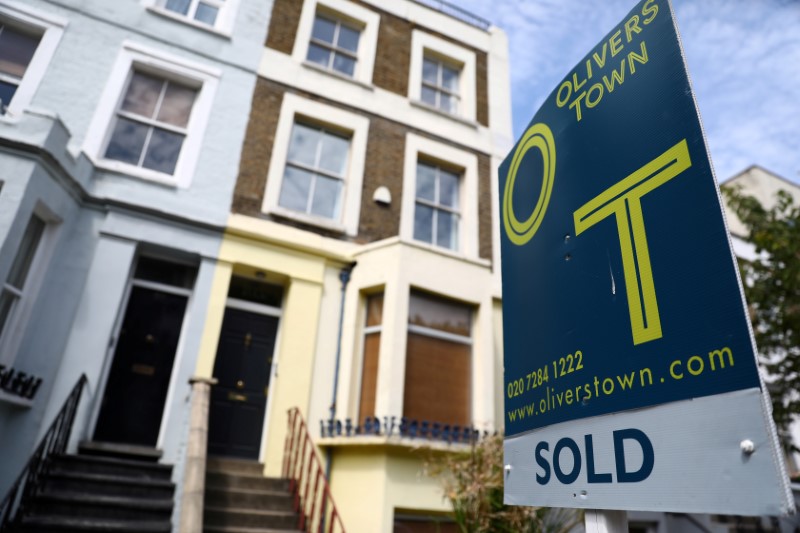LONDON (Reuters) - Asking prices for British houses put on sale in the five weeks to Jan. 11 rose by a record amount for the time of year, property website Rightmove said on Monday, adding to signs of a post-election bounce in consumer and business confidence.
Britain's Royal Institution of Chartered Surveyors and major mortgage lender Halifax have both reported stronger-than-expected housing market activity since Prime Minister Boris Johnson's election victory on Dec. 12.
Business surveys from Deloitte and IHS Markit have also perked up, as the election result ensures there will be a smooth departure from the European Union on Jan. 31 and no industry renationalisation by the opposition Labour Party.
Rightmove said average asking prices of property marketed between Dec. 8 and Jan. 11 jumped 2.3% in monthly terms, the biggest increase for that period since the survey started in 2002.
Prices were up 2.7% compared with the same period a year earlier, marking the strongest growth since July 2017.
"There now seems to be a release of this pent-up demand," Rightmove director Miles Shipside said. "The housing market dislikes uncertainty, and the unsettled political outlook over the last three and a half years since the EU referendum caused some potential home-movers to hesitate."
Asking prices, which are not seasonally adjusted, rose by 0.8% year-on-year in December's release.
Britain's housing market has slowed since June 2016's Brexit referendum, especially in London and neighbouring areas, where higher property taxes as well as concern about the impact of Brexit on the region's economy hurt demand.
There had been some signs of a pick-up in the housing market before the election.
Official data for November showed a 2.2% rise in house prices across Britain, the largest increase in a year, and Halifax said prices rose 4.0% in the 12 months to December, bolstered by the biggest monthly rise in almost 13 years.

But the broader economic picture in the run-up to election was downbeat, with GDP growth in the 12 months to November the slowest since 2012 at just 0.6%, and more Bank of England officials are considering cutting interest rates.